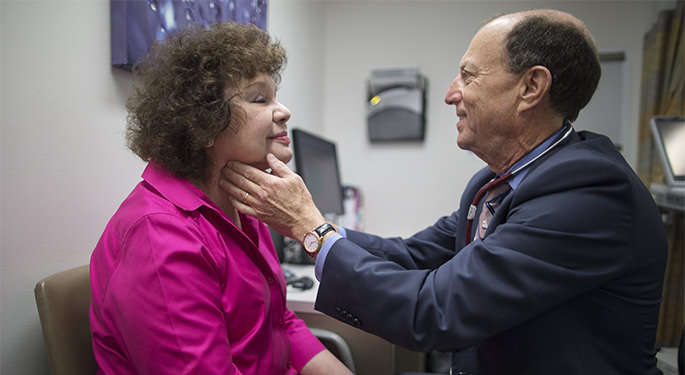Bone Disease - Osteoporosis

The endocrinologists of the Mount Sinai Health System are experts in diagnosing and treating all types of osteoporosis and other bone diseases, including hyperparathyroidism, osteomalacia and Paget’s disease.
Researchers at Mount Sinai have made ground-breaking progress in this area.
Osteoporosis is the most common type of bone disease in which bones lose mineral density and over become brittle and fragile. The result is a higher risk of breaking a bone. About 54 million Americans have this bone-thinning disease. Women over 50 and men over 70 are at particularly high risk.
Often, osteoporosis comes about after menopause in women and with age in men. However, many medical conditions, medications and metabolic disorders can lead to osteoporosis in any age group. In such a case, the underlying cause must be found and taken into account in order to provide effective treatment. We get particularly suspicious when we evaluate people who already had a fracture.
Diagnosis
To properly diagnose many bone conditions, it helps to determine your bone density, to tell us how healthy your bones are. At Mount Sinai, we offer state-of-the-art dual-energy X-ray absorptiometry (DEXA) bone-density testing. While we screen many women after menopause and men over 70, we may order bone density testing if you have:
- An autoimmune disorder, like rheumatoid arthritis, lupus, and multiple sclerosis
- An endocrine/hormonal disorder, like hyperparathyroidism, Cushing’s syndrome, hyperthyroidism, low testosterone
- A digestive Disorder, such as inflammatory bowel disease or poor absorption
- HIV/AIDS
- Chronic obstructive pulmonary disease (COPD)
- History of transplant
- Family history of osteoporosis
We might also do a bone density test if you have a poor diet or have lost a lot of weight.
To learn more about the DEXA test, to make an appointment to get a bone density test, and what you need to know to prepare for this test, please click here
Treatments
Treatments for osteoporosis are very effective if caught early, which is why it’s so important to get screened if you are at risk.
Our specialists will match the right medication with your particular type of bone loss and counsel you on lifestyle changes to improve bone health and greatly reduce your risk of breaking a bone.